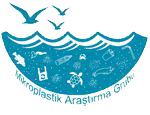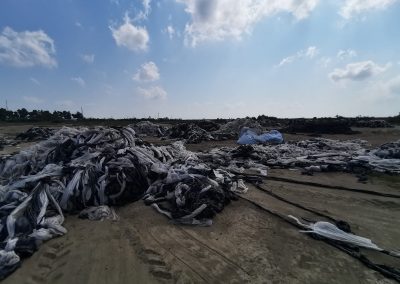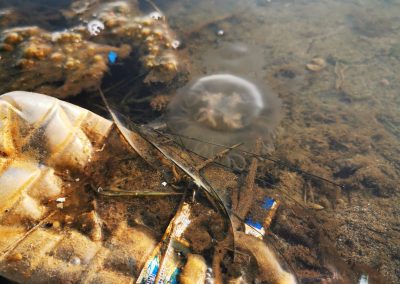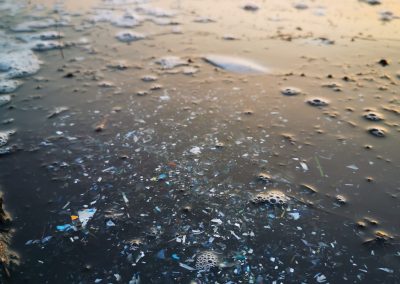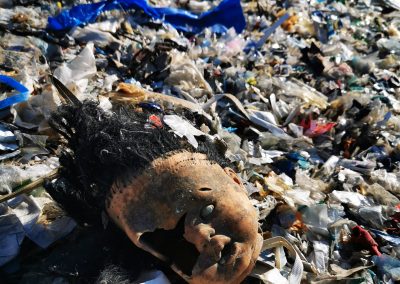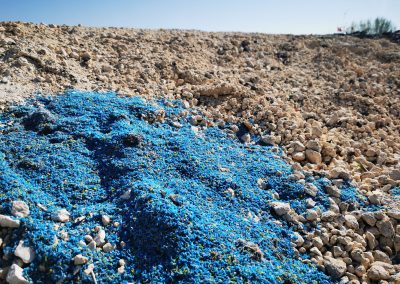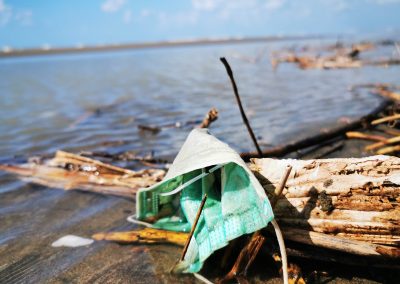The Plastic Recycling Myth
An impressive documentary about the scam of plastic recycling
Do you want to test your knowledge about plastıcs?
What are mıcroplastıcs?
Microplastics are small plastic particles with a size between 5 mm and 1 micrometre. It is not easy to recognise them with eyes due to their small size.
Microplastics can be found in rivers, lagoons, lakes, seas, and the atmosphere.
All foodstuffs covered with plastic have the risk of containing microplastics.
Microplastics can absorb other pollutants (heavy metals, pesticides, etc.) in their surroinding environment.
Microplastics smaller than 130 microns can pass through the intestines.
ACTIVE PROjects
Plastic/Recycling Facility Fires
Plastic and recycling factory fires have attracted attention for a long time globally, especially in connection with illegal activities in the waste sector. This attention has increased even more after a report published by INTERPOL. We have also initiated a project to reveal the condition of a similar factory fire in Turkey in recent years.
Microplastic Pollution Levels in Some Natural Lakes
Within the scope of the project, water, sediment and fish sampling will be carried out in these determined aquatic environments for two years, twice a year.
Microplastic Pollution in the Soils of Lower Seyhan Plain and Seyhan River
This project aims to determine the current status of microplastic pollution in the Lower Seyhan Plain (ASO) soils in Turkey, its relationship with soil biodiversity, its transport to the marine environment via the Seyhan River, and its impact on the Seyhan River fish fauna.
Floating Macro-Mega Marine Debris
In this context, the quantity, distribution, and types of macro and mega marine debris found floating on the southeastern Mediterranean coasts of Turkey will be investigated.
Fıve easy ways for a lıfe wıthout plastıc
Plastic pollution has become such a problem that individual efforts cannot change it. However, by not using plastic, it is possible not to become a part of the environmental crime caused by plastic.
Power of reusable bags
Carrying a bag will always save you from being caught off guard. If you put a reusable storage container, water bottle, personal glass and a couple of reusable bags in the bag, you will avoid using many disposable plastics.
Say “Never” to plastic straw
Plastic straws are the most unnecessary and meaningless plastic product in the world except for medical use. Its use is nothing but waste and pollution. If you do not have a problem where you have to use plastic straws, please specify that you do not want straws when you order.
Storage container or other alternatives instead of cling films
One of the most consumed plastics at home is cling films. It is widely used to preserve foods. However, the solution is straightforward: Storage container or alternative reusable products made of aluminium foil or wax, used for wrapping and storage.
Not order food from restaurants
Significant amounts of plastic are used in meals delivered to the house or workplace upon order. Foam or other plastic packagings in which ordered food is placed is a serious threat. The wet wipes, toothpicks in a plastic bag, sauces and other extras always mean plastic! So instead of ordering food, it’s best to go and eat at the restaurant or eat at home.
Microplastic fibres from laundry!
We must first accept that; Wearing the same things every day may be against fast fashion, but it is a very beneficial job for the environment. We’re not talking about wearing the same things for weeks. We’re talking about wearing a few different combinations on different days. The clothes you take out and wash to keep up with the fashion even though they are not dirty, release thousands of fibres into the aquatic environment, mostly polyester, acrylic and nylon.
GALLERY
Contact Us
